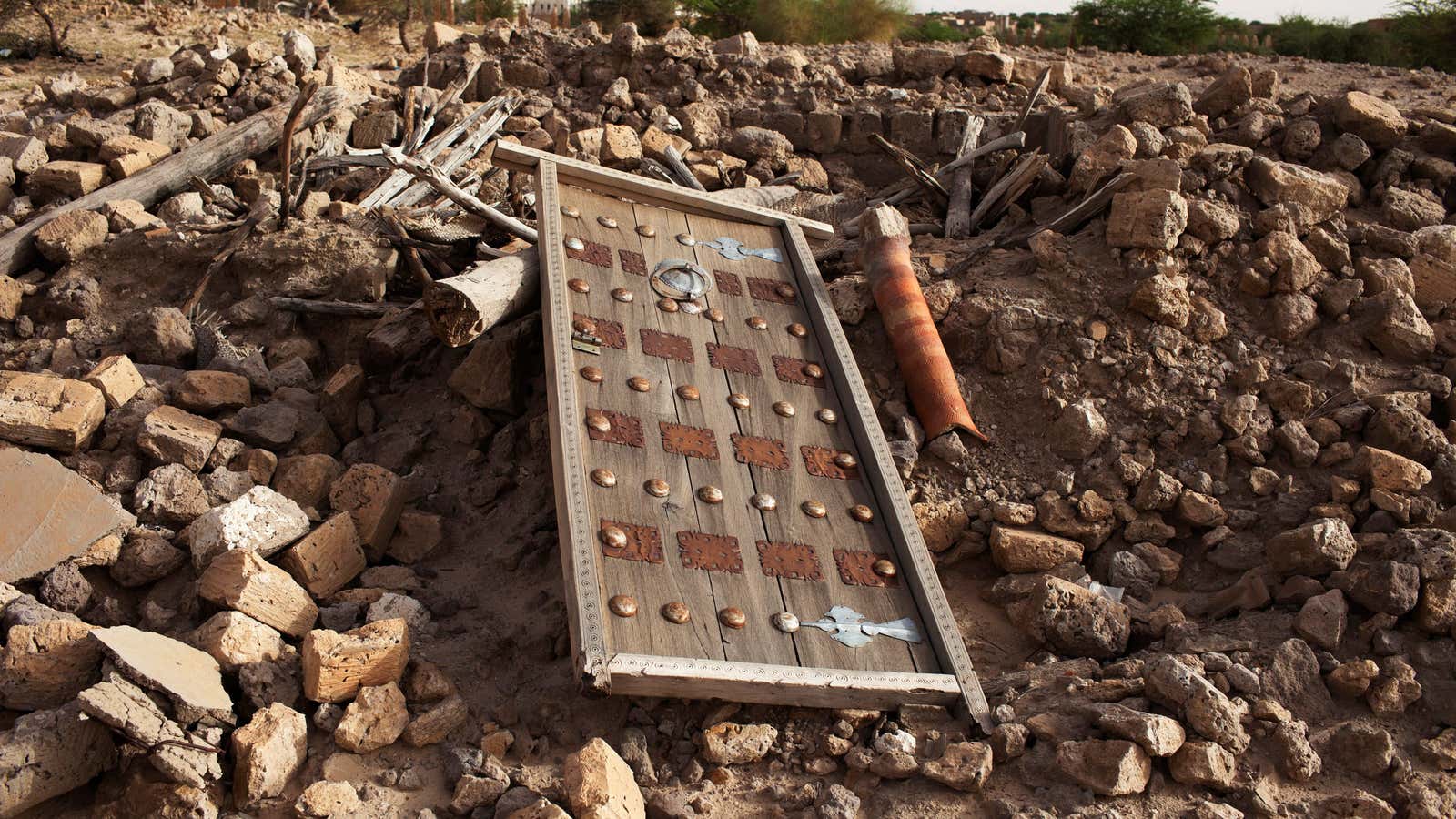Islamist fighter Ahmad al-Faqi al-Mahdi has been sentenced to nine years in prison for his role in the destruction of historical sites in Mali’s ancient trading city of Timbuktu. Mahdi’s conviction marks a rare victory for the International Criminal Court (ICC) as well as the first time damaging cultural artifacts has been charged as a war crime.
Mahdi pleaded guilty at the beginning of his trial, admitting his role in both orchestrating and participating in the razing of religious shrines and mausoleums during a raid on the Malian city in 2012. Mahdi and other militants occupied the city, enforcing Sharia law, until it was freed by French forces in 2013.
Yet the penitent Mahdi who said he was “really remorseful” for the damage he caused has not been charged with other crimes that human rights investigators say he would have overseen during its occupation, including torture, rape, forced marriages, and sexual enslavement.
Last year, the France-based International Federation for Human Rights (FIDH) and other rights groups in Mali filed a complaint on behalf of 33 victims to the high court in Bamako. FIDH and its partners also called on the ICC to include gender-based crimes in its investigation, but the court chose to focus on the easier cultural heritage case, where charges were supported by video evidence.
Richard Nsanzabaganwa, an advisor to ICC, told Foreign Policy that a broader investigation into other crimes committed in Timbuktu “is still in progress.” Any further charges against Mahdi will have to be pursued in a separate case, he said.
